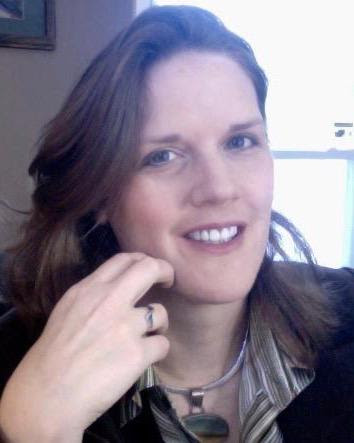by Bonnie Jean Feldkamp
Director of Media
We’re talking to columnists about what it means to be an opinion writer in today’s market. This is the second article in the series.
 Adversity inspires solidarity. When things go wrong we turn to those who understand and support. As members of the press, things have definitely gone wrong for us. On top of coping with shifting roles due to newspapers cutting jobs — reorganizing and reinventing themselves as they figure out what it means to report news in our digital reality — journalists are now dealing with a commander-in-chief who views the media as the enemy. No matter your political affiliation, the White House is openly hostile towards our chosen profession.
Adversity inspires solidarity. When things go wrong we turn to those who understand and support. As members of the press, things have definitely gone wrong for us. On top of coping with shifting roles due to newspapers cutting jobs — reorganizing and reinventing themselves as they figure out what it means to report news in our digital reality — journalists are now dealing with a commander-in-chief who views the media as the enemy. No matter your political affiliation, the White House is openly hostile towards our chosen profession.
Columnists writing for competing publications stood shoulder-to-shoulder at political rallies and protests. We’ve shared meals and professional development at a conferences. We are members of the same tribe with the same purpose — to document our world with some perspective.
Tribe, according to my Merriam-Webster dictionary app on my iPhone, means a “group of people who have a common character, occupation or interest.” Isn’t that also called a co-worker or colleague? Sure, but when I scroll down to the synonym section of the app the words considered synonymous for tribe are “clan, kindred, stock and family.” These words pull a person much closer than “co-worker” does. A member of one’s tribe is supportive, trusted and respected. Someone privy to your inner circle.
Pulitzer Prize-winning columnist Connie Schultz says, “You have to have other writers who believe in you and want you to succeed. I can either resent you or be inspired by you.” That’s how she sees it. “When any one of us succeeds, I’d rather be inspired.”
Newspapers have lost some institutional layers in their need to downsize. “We don’t have the physical space we used to have when so many of us were working in newsrooms,” says Schultz. “But that doesn’t mean we can’t be a tribe for one another.”
When she’s not sure she’s hitting the right tone in a column she knows she can turn to her friend Maura Casey. “We’re both 59. We’ve been writing for three decades as journalists.” And Schultz is sure to be there for Casey as well.
Gina Barreca agrees. Though she has been writing books about women, humor and politics since 1991, she says, “it was after my first talk at the Erma Bombeck Writers’ Workshop in 2012 that I found and named my tribe.”
When Barreca is working on a column and is unsure the topic will work for her in print she says, “I’ll send it up like a kite on Facebook.” Or she sends it out in an email to her trademark “Tribe of Loud, Smart, Funny Women (and our auxiliary group, The Men Who Laugh With Us) to see what folks think.”
Barreca often quotes her tribe members in the columns themselves. “Writing might be solitary,” she says, “but publishing means working with a collective and trusting your audience. Your tribe is your audience and you’re just one of their voices.”
Freelance writer and columnist for Cabin Living magazine Christy Heitger-Ewing feels there’s something very special about congregating with a group of writers at conferences. She says, “The people I’ve met through the National Society of Newspaper Columnists and the Erma Bombeck Writers’ Workshop have not only offered professional council but also personal and emotional support.” Heitger-Ewing can remember when she was the only writer she knew. Now, thanks in part to her conference experiences, she says, “I have a large tribe of trusted, talented, truly gracious friends and colleagues.”
Connie Schultz reminds us that, as writers, “We know there are various words that mean the same thing but there’s only one word that fits in any given sentence we’re trying to write.” For columnists working through this trying time of adversity, we know the one word that “fits” and the one word that sets the tone for our camaraderie is “tribe.”
 Bonnie Jean Feldkamp is a blogger and features contributor for Cincinnati Family Magazine. Her essays have appeared in The New York Times; Scary Mommy and Brain, Child Magazine as well as regional parenting publications. Find her on social media @WriterBonnie.
Bonnie Jean Feldkamp is a blogger and features contributor for Cincinnati Family Magazine. Her essays have appeared in The New York Times; Scary Mommy and Brain, Child Magazine as well as regional parenting publications. Find her on social media @WriterBonnie.
